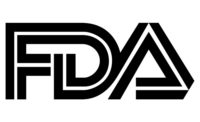Preparation Is Key to Staying off FSMA’s Annual Mandatory Recall Report

The Food Safety Modernization Act (FSMA) requires the U.S. Department of Health and Human Services (HHS) to submit to Congress an annual report on the U.S. Food and Drug Administration’s (FDA) exercise of its new mandatory recall authority and the issuance of public health advisories that advise against the consumption of an article of food. In December 2013, HHS issued its first annual recall report. (The report is found on FDA’s website.)
The HHS report reiterates that with enactment of FSMA, FDA no longer is a toothless watch dog. Prior to FSMA, FDA had to rely on a company’s voluntary decision to remove food from the marketplace. Absent voluntary compliance, FDA had to seek a court order to compel a company to recall food that might be hazardous to the public’s health. Now, FSMA allows FDA to order that a company cease distribution of a food product and recall all implicated product where FDA finds it reasonably probable that the food is adulterated or misbranded and that use of the product could result in serious illness or death. Of course, a company may voluntarily undertake a recall in the face of such an FDA finding. But if the company refuses, its option is to request a hearing be held within 2 days of receipt of FDA’s order in an attempt to convince FDA that no recall is needed.
HHS reports only one instance since enactment of FSMA, in January 2011, in which FDA has used its mandatory recall authority. The HHS report explains that in 2012, FDA inspected Kasel Associates Industries, a manufacturer of pet food. In 2012, FDA inspections revealed that certain Kasel products made in one Kasel facility tested positive for more than 10 species of Samonella and that Kasel did not adequately clean the facility. At the same time, FDA received reports that dogs allegedly became ill from eating Kasel products. As a result of FDA’s investigation, Kasel voluntarily recalled a select variety of products made at the facility. Kasel did not, however, recall all products made at the facility, including one of the products with a sample that had tested positive for Salmonella.
The HHS report further explains that on February 13, 2013, FDA conducted a follow-up inspection of the Kasel facility. HHS reports that FDA found that Kasel had implemented corrective actions, but that some pet treats manufactured during the period encompassed by FDA’s 2012 inspection remained on the market and were a potential threat to public health. As a result, FDA issued a notification letter to Kasel that provided the company 2 business days in which to inform FDA whether Kasel would voluntarily recall the product at issue. Kasel capitulated, voluntarily recalling all pet treats that it had manufactured during the period FDA identified.
Some commentators have questioned whether FDA has the resources to utilize its mandatory recall authority. Likely, some commentators will point to the HHS annual recall report as evidence of their surmise. But, the HHS report that FDA has used its mandatory recall authority only once so far should not lull a food company into a false sense of security in believing that FDA is unlikely to knock on its door.
FSMA requires FDA to increase the frequency of its inspections, and the number of voluntary recalls appears to be on the rise. Any recall, of course, is likely to be harmful to a company’s brand and bottom line. But a mandatory recall may be especially disastrous to a company’s business, even if there is no attendant public health harm. In the age of social media, a company may find it difficult to restore consumer confidence in its food products where consumers learn, or even perceive wrongly, that the company acted to protect them only after government intervention.
Of course, FSMA requires food companies to take steps needed to avoid recall situations in the first place. Preparation and implementation of a properly written food safety plan that accounts for the following activities is one key to that endeavor:
• Hazard analysis that identifies and evaluates known and foreseeable hazards;
• Preventative controls that prevent the hazards;
• Monitoring to make sure the plan is carried out;
• Verification that preventative controls are up-to-date and effective and that necessary records are being kept;
• Corrective action procedures where preventative controls are not effective; and
• Recordkeeping on each component of a food safety plan.
But even companies with food safety plans and excellent food safety records may find themselves at some point with a product requiring recall, as revealed by review of voluntary recall notices posted on FDA’s website. Therefore, it is prudent for companies to prepare for a worst case recall scenario by drafting a written plan that sets forth detailed protocols the company will follow in the event of a recall, voluntary or FDA ordered, and practicing that plan to make sure that it will be effective in the event of an actual recall.
A company’s particular operations and business needs will guide the particular content of a recall plan. But any recall plan should enable the company to move quickly and proactively, especially given the limited time in which to operate where public health may be in jeopardy. Although there are many pieces to effective recall plans and to managing the business crisis often attendant with a recall, at a minimum a recall plan should:
Identify a recall team familiar with all aspects of the company’s business, supply chain and governing regulations;
• Ascertain with whom at federal, state and local governing agencies the company is to interact;
• Specify who from the recall team will notify and interact with governing agencies, supply chain partners and consumers;
• Set forth protocol for communications with governing agencies, supply chain partners, and consumers;
• Establish a mechanism to track complaints, including the product implicated, purchase location, product identifying code and health consequences alleged;
• Outline steps to cease distribution of, recall and, if necessary, store product implicated;
• Specify recall classifications, and the level of public notice each classification requires;
• Include model recall notices and press releases;
• Account for the retention and collection of documents needed to effectively and efficiently address a recall, to challenge a mandatory FDA recall order and, if appropriate, institute a litigation hold;
• Set forth plans for brand management and maintenance of impacted supply relationships; and
• Plan for payment of the considerable costs that typically accompany a recall, including recall insurance.
In short, in addition to producing safe food in the first place, preparation is the key should a company wish to stay off the HHS’ annual report on FDA’s use of its mandatory recall authority. Preparation also is fundamental to effectively managing the crisis attendant to a recall should a recall occur despite a company’s best efforts to produce safe food. For the unready or unwary food company, both a government ordered recall or a voluntary recall may result in a devastating blow to a business.
John T. Shapiro is partner and member of the Food Industry Team at Freeborn & Peters LLP (Chicago). Christina S. Solomon, Esq., is Freeborn’s Industry Business Development Manager and works with the firm’s Food Industry Team.
>
Looking for a reprint of this article?
From high-res PDFs to custom plaques, order your copy today!






